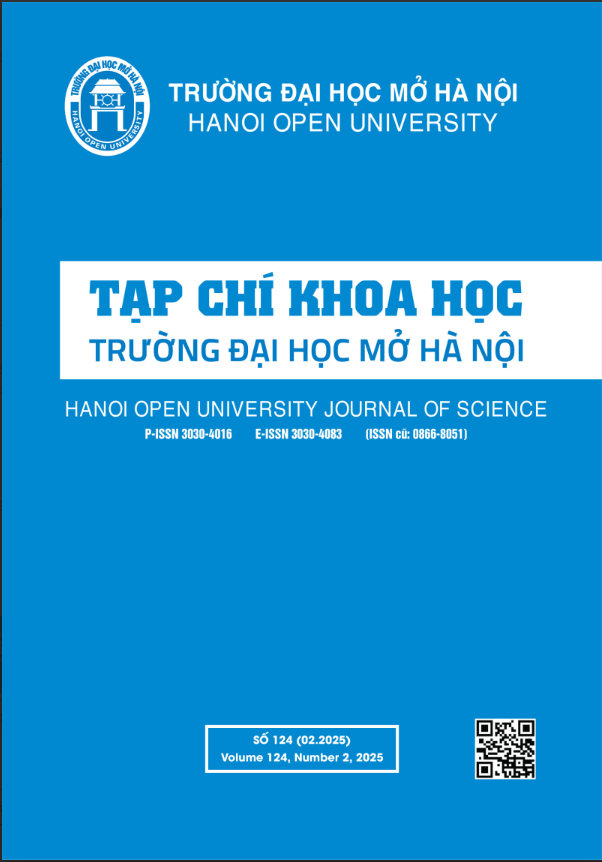A STUDY ON THE ONLINE LANGUAGE OF THE YOUNG TODAY BASED ON THE SOCIAL PLATFORM FACEBOOK
DOI:
https://doi.org/10.59266/houjs.2025.535Từ khóa:
online language, the young, Facebook, hot trend, social mediaTóm tắt
The online language of young people on social platforms is being studied by linguists in general and Vietnamese linguists in particular. The author has researched the hot trend speech patterns (new trends) that young people often use on Facebook and surveyed the characteristics of the origin, linguistic characteristics, and socio-cultural characteristics of this new language. The author used qualitative and quantitative research methods from the data source, which are hot trend words and sentence patterns in chats, articles, and comments on Facebook. The research results show three basic sources of hot trend language: movies, music videos, clips, and posts on social networks. Hot trend sentence patterns are used in three basic forms: inserting English into Vietnamese speech, using slang, and using new structures. This is a breakthrough in the Vietnamese language, contributing significantly to enriching the Vietnamese language and making the language of young people unique.
Tài liệu tham khảo
[1]. Brown, D. H. (2000). Principles of language learning and teaching. (4th edition). New York: Longman.
[2]. Dang, D. T. (2015). “Ngôn ngữ teen trong giao tiếp giới trẻ hiện nay”, Tạp chí Văn hoá nghệ thuật Số 376
[3]. Hymes, D. (1972). Models of the interaction of language and social life, New York: Holt, Rinehart, Winston.
[4]. Le, T. V. (2021). Về một kiểu ngôn ngữ hot trend của giới trẻ hiện nay”, Tạp chí Từ điển học & Bách khoa thư, Số 1.
[5]. Nguyen, V. K. (2002). Tiếng lóng Việt Nam, Nxb Khoa học Xã hội, H.
[6]. Nguyen, V. K. (2012). Ngôn ngữ học xã hội, Nxb Giáo dục Việt Nam, H.
[7]. Nguyen, V. H. (2014). “Thực trạng sử dụng tiếng Việt phi chuẩn của giới trẻ hiện nay nhìn từ góc độ ngôn ngữ học xã hội”, Tạp chí Ngôn ngữ & Đời sống, số 5.
[8]. Richmond, E. B. (1987). “Utilizing proverbs as a focal point to cultural awareness and communicative competence: illustrations from Africa”. Foreign Language Annuals. 20 (3),213-216. 5. UNESCO (1982), World Conference on Cultural Policies, Mexico City.
[9]. Taylor, R. (1987). Primitive Culture, Missouri Education.
